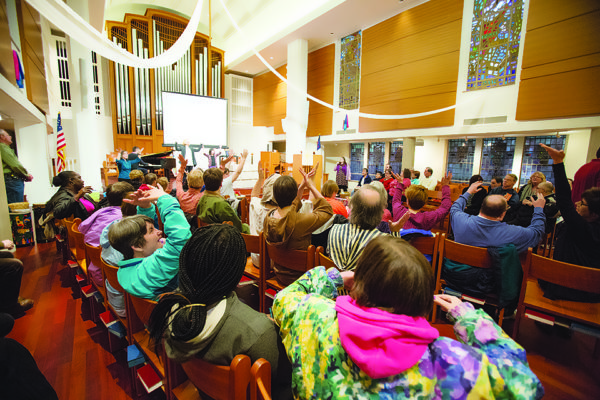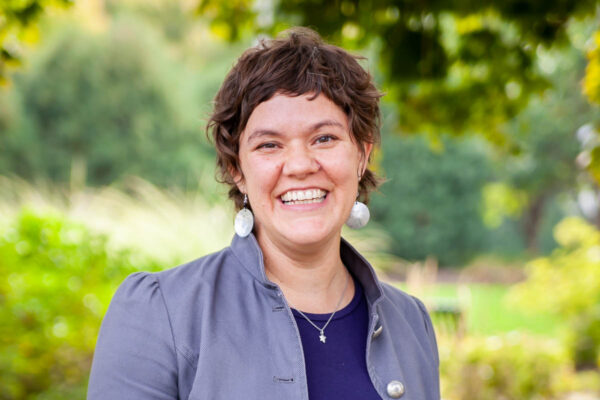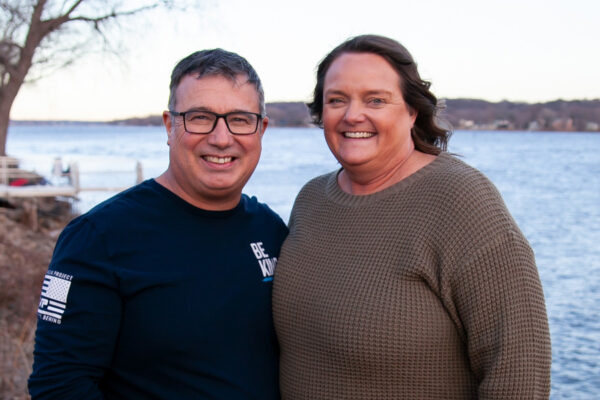Belonging, connection, faithfulness, grit

Axtell, Nebraska, is a town in the southcentral part of the state that 726 people call home. One of those people is Paul Schafer. Paul has lived much of his life in Axtell, a farming community that is the place where an organization called Mosaic began in 1913.
It all started with one Swedish Lutheran pastor, one house, and a belief that people with disabilities had the right to live a happy, thriving, and healthy life. Today, Mosaic serves people with disabilities, mental and behavioral health needs, and autism, as well as aging adults. A total of 4,500 people are a part of Mosaic programs in 11 states, including Illinois and Iowa. From empowering people to live as independently as possible to 24-hour support, Mosaic offers a wide range of person-centered services. It is based in Omaha.
About 55 years ago, Paul, the son of dearly departed St. Paul members Royce and Celia Schafer, went to live in Axtell when he was four years old. His parents, seeking a place where their child with profound intellectual disabilities could thrive, had found what was then called the Bethphage Mission.
Now 60, Paul is happily at home in Axtell, his sister Ann Nelson said. She was 15 years old when Paul was born.
“He likes to play with objects in his hands,” Ann said of her brother, who communicates nonverbally. She lives about two hours away from him in Omaha. “He loves to be in the water. They have a swimming pool there. He likes to hold hands and have his back rubbed and his head rubbed. He’s happy there. Mosaic has activities for him during the day. He’s gotten very good care there.
“Mosaic is really a terrific place,” she said.
For many years, St. Paul benevolence fund of the Daily Ministry Budget has given a gift to Mosaic. In 2019, St. Paul sent $6,000. Mosaic also is a social ministry of the Evangelical Lutheran Church in America, the denomination to which St. Paul belongs.
History
In 1913, a young Lutheran pastor named K.G. William Dahl was called to serve in Axtell. He had a dear friend named Gustav who had epilepsy, said David deFreese, who is vice president of church relations and international programming for Mosaic. Gustav had a seizure in public and was incarcerated. When Pastor Dahl went to visit, Gustav was naked, in a cell, and humiliated.
Pastor Dahl gathered his small congregation. Fifty-four donors gave $1 a piece to rent a house in town for people who faced difficult circumstances. The first residents were Gustav, a person with an intellectual disability, and a person with an addiction to alcohol.
In 1925, a group of like-minded people had a similar vision in the small Nebraska town of Sterling. They created Martin Luther Home, a residential school for children with disabilities. Enthusiastic families sent their children to Sterling before the building was open. Pastor Julius Moehl and his wife Martha welcomed them to live with their family until the school was ready for them.
From the 1930s-1950s, the two organizations continued to grow. They survived the Dust Bowl, the Great Depression, World War II, and the recovery afterward. With the passage of the Medicaid and Medicare Act of 1965, more funding became available to support desperately needed services. Undaunted by the prospect of increased regulation and oversight, both organizations expanded their services rapidly, growing community-based services in other states for the next three decades.
In 2003, Bethphage and Martin Luther Home united to become Mosaic, David said.
Genuine life of possibilities
David was 6 or 7 years old when his Sunday school went to Axtell to spend time with the people who lived there. He returned during college to work in the summers. Then, after 12 years as the bishop for the Nebraska synod of the ELCA, he decided to return to work for Mosaic.
The organization is in a time of growth, and is shifting its mission to be a healthcare organization while honoring its history of always considering the whole person, including spiritually, he said.
The hope of the church, he believes, is in social ministries. He buys whole-heartedly the theory that every 500 years or so, the church goes through an unsettling. With the reformation just more than 500 years ago, it seems as if that time is now.
“There is a genuine sense of mission at Mosaic, a sense of call,” he said. “This is something bigger than us, a spiritual component that is driving this.”





Deb Slothower
Great article and update for me. I was able to volunteer @ Bethphage while on a high school mission trip. Great memories!